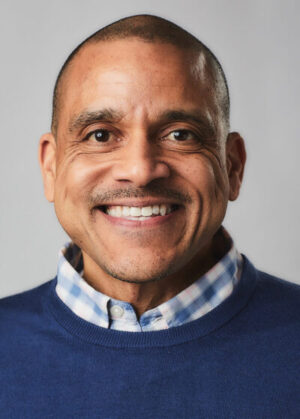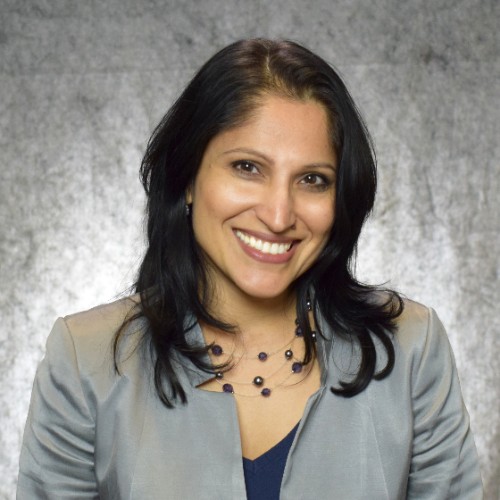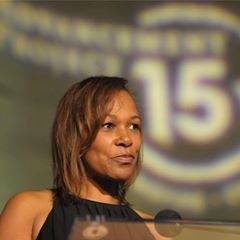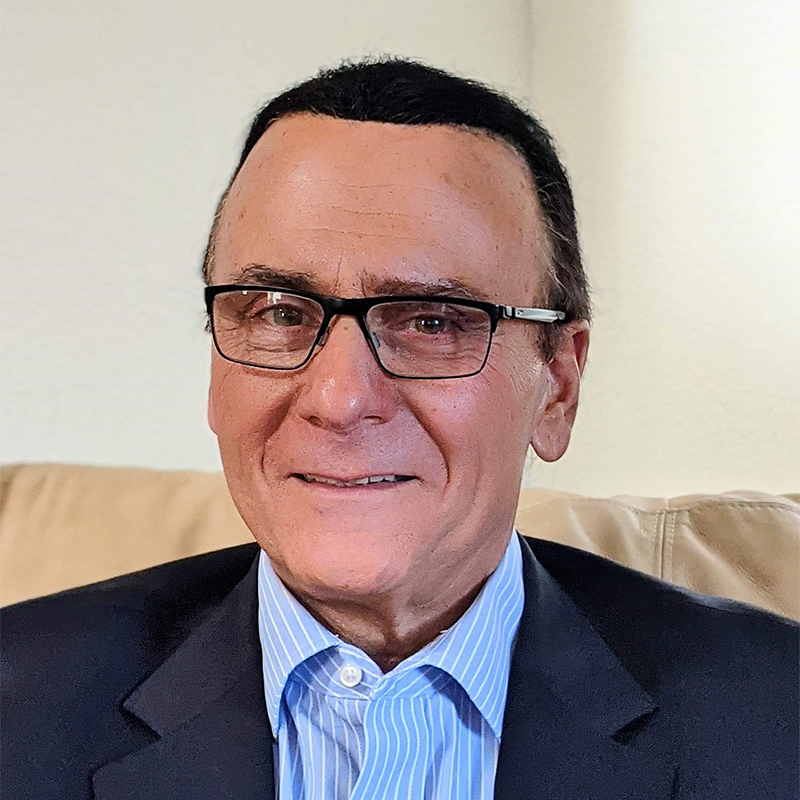I am hopeful about solidarity as a strategy to win. Over the past several years, we have seen an alarming rise in threats to our democracy including rollbacks to reproductive rights, voting rights, the dehumanization of immigrant communities, discrimination against LGBTQ+ communities, political polarization, and disinformation campaigns that fuel hate. I believe the kind of transformative change we need to disrupt these threats is strengthening the connective tissue between and within social justice movements, which is one of the key pillars of transformative solidarity.
I also feel deeply connected to Proteus Fund’s explicit focus supporting communities impacted by unjust systems and willingness to make big bets to address the most fraught social justice issues of our time such as immigrant justice, reproductive rights and LGBTQ+ equality. I’m also drawn to Proteus’s approach to philanthropy which emphasizes risk taking, relationship building, elevating grassroots decision-making, and shared learning.
I am an organizer, grantmaker, and researcher who has worked across disciplines to advocate for racial justice and equality. The calling to be an advocate for justice has been a through line in my life and shaped by my identity as a Black, queer man in a society that has historically marginalized and discriminated against LGBTQ+ communities and Black folk. This juxtaposition has shaped and colored my views about the fight for justice and equality.
Early in my career, I had a desire to learn about the forces shaping our global political economy, particularly in the aftermath of the decolonization movements in the global south. I lived abroad, and, for a short period, worked as a consultant for UN organizations focused on issues like humanitarian assistance and migration. I eventually obtained a master’s in international affairs. Yet, my career would take me on a different path. After a fellowship at the National Coalition to Abolish the Death Penalty (NCADP) in the early 2000s, I became motivated to disrupt the legacy and current practices of racialized violence and discrimination in our overly punitive criminal legal system. While at NCADP, I joined a host of other advocates from around the world to take part in the UN World Conference Against Racism (WCAR) in Durban, South Africa and the nearly two-year organizing process leading up to the conference. This was a period of on-the-ground collaboration to shape the Conference’s official Declaration and Programme of
Action – a sort of political manifesto – and the parallel NGO declaration. This intense coalition building and learning about other movements for liberation were influential forces that shaped my political analysis and understanding of solidarity.
Participating in and organizing base building meetings with advocacy partners around social and racial justice issues – like the death penalty, reparations, gender bias, the rights of indigenous peoples, migrants and refugees – became an opportunity to build community. It was the first time I would build alliances with African and Afro Descendent activists, organizers, lawyers, and artists from all corners of the world fighting for justice and liberation. We connected in a series of the conference’s preparatory committee meetings in Santiago, Chile, Geneva, Switzerland – and the final conference in Durban. It was an intense period of learning about the impact of racism globally and the fight for liberation across continents.
During this same period, I volunteered in the Black, LGBTQ+ community in the District of Columbia to build bridges between Black, LGBTQ+ and faith communities. As part of this work, I organized community outreach in Black, faith-based organizations, including one church in the District whose faith leader had been openly hostile to the Black, LGBTQ+ community. The result of our organizing led to breaking down silos, community dialogue, and coverage in a national media outlet that served as a lesson learned about the value of strategic communications as an advocacy strategy to advance social justice issues.
After these experiences, which bolstered my understanding of solidarity, I wanted to learn more about domestic and international legal frameworks as tools to advocate for racial justice and human rights, so I obtained a law degree. After graduating, I began a career in philanthropy focused on transforming the U.S. criminal legal system. I have worked in staff roles at Open Society Foundations (OSF), the Ford Foundation, and as a consultant for many more philanthropic institutions. In staff and consulting roles, I have been a member of collaborative donor funds and launched new ones to support Black-led organizing, transform policing practices, abolish the death penalty, end the extreme punishment of youth, and transform justice systems in New Orleans and Michigan.
One of my most transformative professional experiences was working as a program officer in the Justice Fund at OSF. In that role, I collaborated with grantee partners and philanthropic peers to strategically allocate grantmaking dollars to shrink the footprint of our carceral systems. As I worked alongside and conspired with incredibly talented grantee partners and philanthropic colleagues, I learned even more about the incredible work of racial justice advocates leading impactful movement building, organizing, and policy campaigns across the country. I learned how building solidarity across movement ecosystems can strengthen the impact of integrated advocacy campaigns and build community power. I learned these lessons by strategically investing philanthropic resources in death penalty abolition and police transformation campaigns, including a particularly impactful campaign to address the racially-biased impact of the New York City Police Department’s law enforcement practices, including the unconstitutional use of stop-and-frisk.
I learned that competition for scarce philanthropic resources is a real burden to grantees which led me to experiment with approaches to grantmaking to encourage collaboration like creating collaborative proposal submission processes. I also learned how to pivot to develop rapid responses to crises in the field by rolling up my sleeves. For example, after Michael Brown was tragically killed in Ferguson, Missouri, I traveled there and met with community members and activists. I listened to their needs and concerns and joined them in direct action protests, including one across from the Ferguson Police station. All of these experiences helped me to shape OSF’s response to the crisis in an approach that was grounded in the needs of community members. I am hopeful these experiences, and ones yet to be realized, will shape and continue to fuel my journey as an advocate for justice and equality as director of the Solidarity Collaborative.
I have come to understand solidarity as a framework and value of inclusion and understanding grounded in mutual support. This values-based approach to advocacy centers the collective and collaborative work required to disrupt the forces destabilizing our democracy such as growing racialized wealth inequality, rising white nationalism, disinformation campaigns, and efforts to restrict access to the voting ballot, to name a few. Solidarity is a practice of inclusion that unites communities across class, race, ethnicity, gender, sexuality, physical abilities, and much more, to work together to transform our society into a more just and inclusive democracy.
One outcome of transformative solidarity is building political power that advances the political, economic, and social interests of communities that have been historically marginalized by state sanctioned discrimination, violence, and oppression. Unfortunately, the list of communities in our country that have had to fight for liberation and equality is lengthy. The tragic and deeply troubling legacy of the transatlantic slave trade is but one example of how our government has sanctioned violence against one group of people and created an economic engine that exploited them. The genocide of Native American and indigenous communities and internment of Japanese Americans are other, often untold, legacies of oppression. Discrimination against LGBTQ+ communities continues today, not only in the U.S. but around the world.
Organizing in coalition, within and across advocacy ecosystems, is an element of a solidarity practice that allows communities to come together to build political power. If communities fighting for immigrant justice and racial justice are not united, do not understand their connected histories or coexisting oppression from the same political and cultural forces, we are already losing the fight for our liberation. If communities focused on disability justice, immigrant justice, and racial justice are not united, it becomes more difficult to challenge carceral systems that warehouse individuals with serious mental illness and advocate for more humane systems of care for vulnerable populations.
We can learn from one another. We can strategize together and join in collective action, expanding our base of support and impact. Yet, relationship building takes time and patience. This is where faith enters. Solidarity is also a belief in the unseen and potential of collective action. As advocates fighting for a more just and inclusive democracy build relationships and trust, deepen their understanding of their shared destinies, they become powerful forces challenging systems of oppression fueled by hate, violence, and intolerance. Solidarity is also grounded in the belief that our work together, in coalition, with collective action, will be stronger, more resilient and impactful than in siloed advocacy ecosystems. So, let’s expand the “we” in our work.
I envision the Solidarity Collaborative as a laboratory creating space for racial justice advocates to learn about the practice of transformative solidarity in a community of peers. In our increasingly digitized world, we are all caught in virtual spaces that create the illusion of closeness but which do not always foster sustainable relationships. The Solidarity Collaborative’s convening program will bring racial justice advocates together several times a year to strengthen their understanding and practice solidarity while building community.
In our increasingly busy world, we often manage a set of priorities all calling for our attention, sometimes, moving from one crisis to the next, navigating full inboxes, all while trying to counter the forces conspiring to subvert our democracy. I am hopeful the Solidarity Collaborative will create space for breathing room so cohort participants can envision the future we need, strategize about how to get there, and develop impactful racial justice advocacy projects grounded in the practice of solidarity.
In bringing racial justice advocates together from diverse set of communities – Muslim, Jewish, Latino, Black, Asian – who work on issues such as disability justice, reproductive rights, faith-based organizing, economic equality, the Solidarity Collaborative also has the potential to seed cross-movement collaboration among donors in service of an inclusive, representative democracy.








